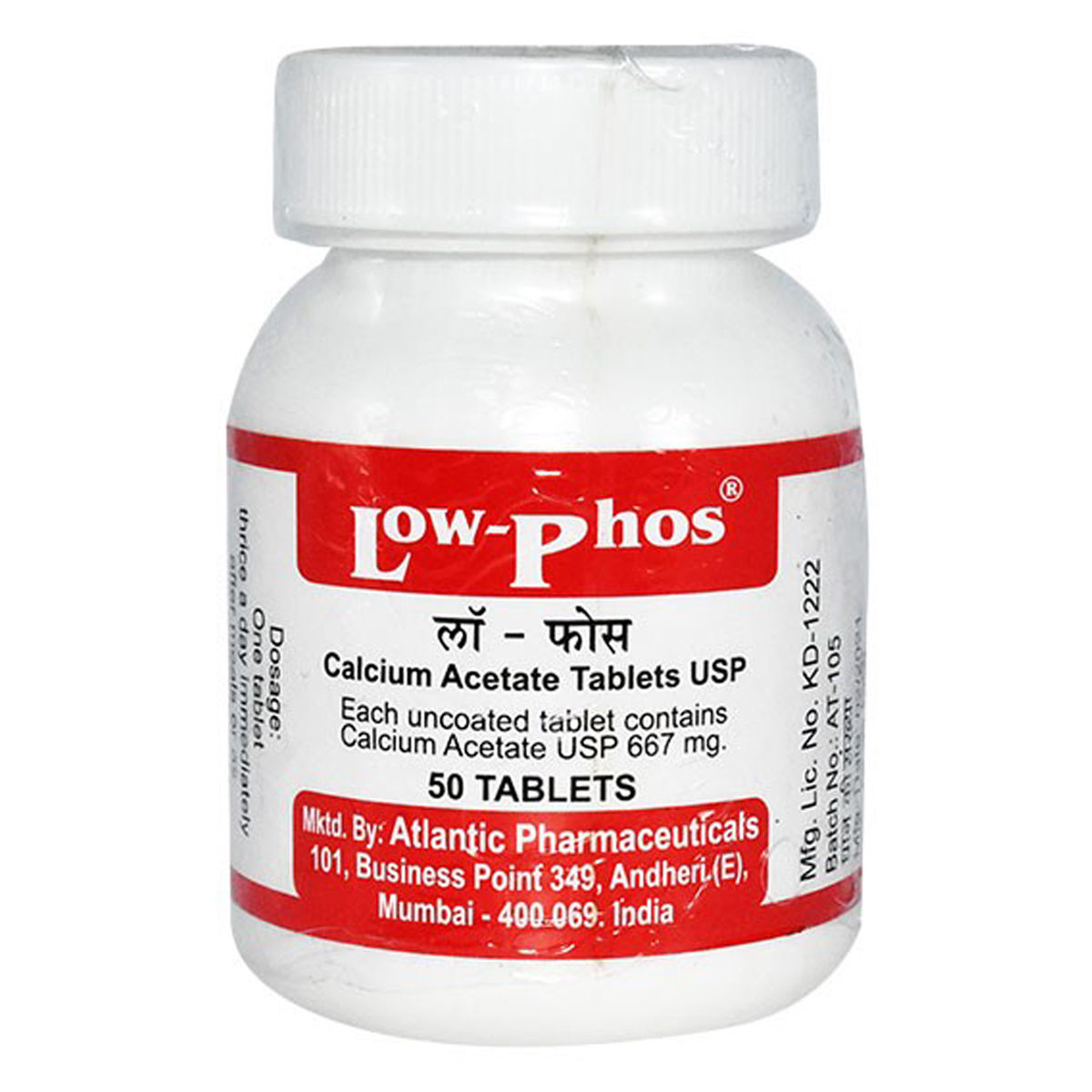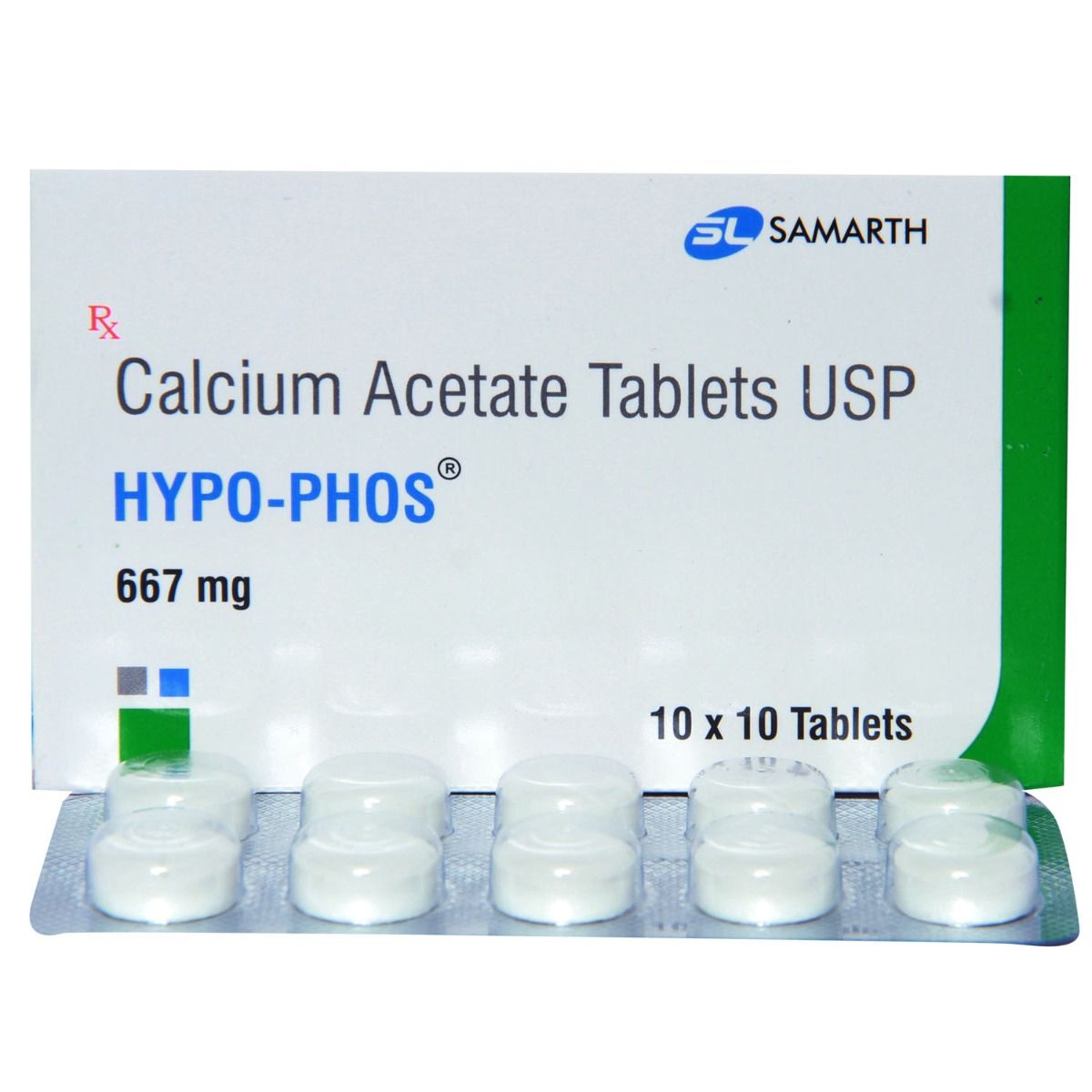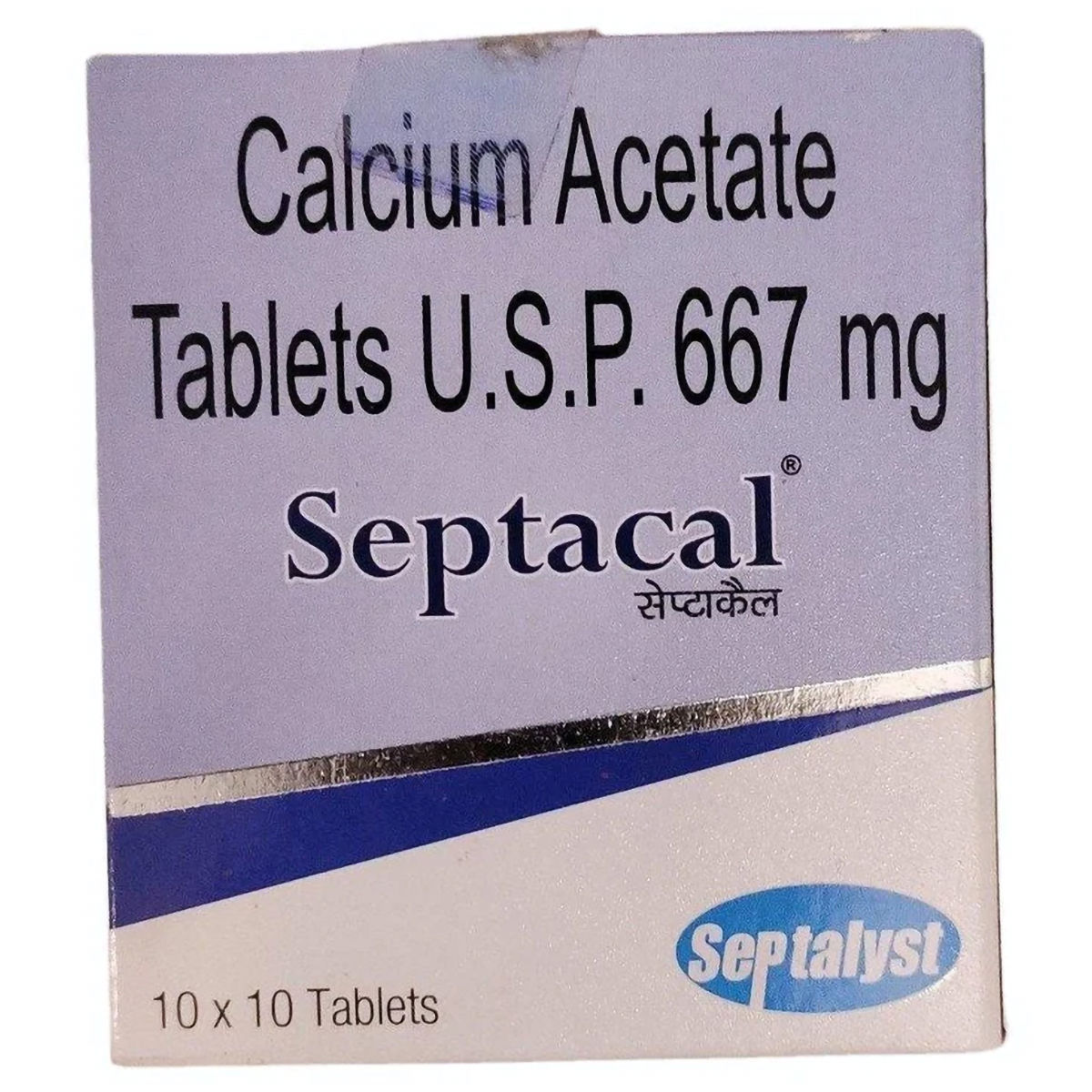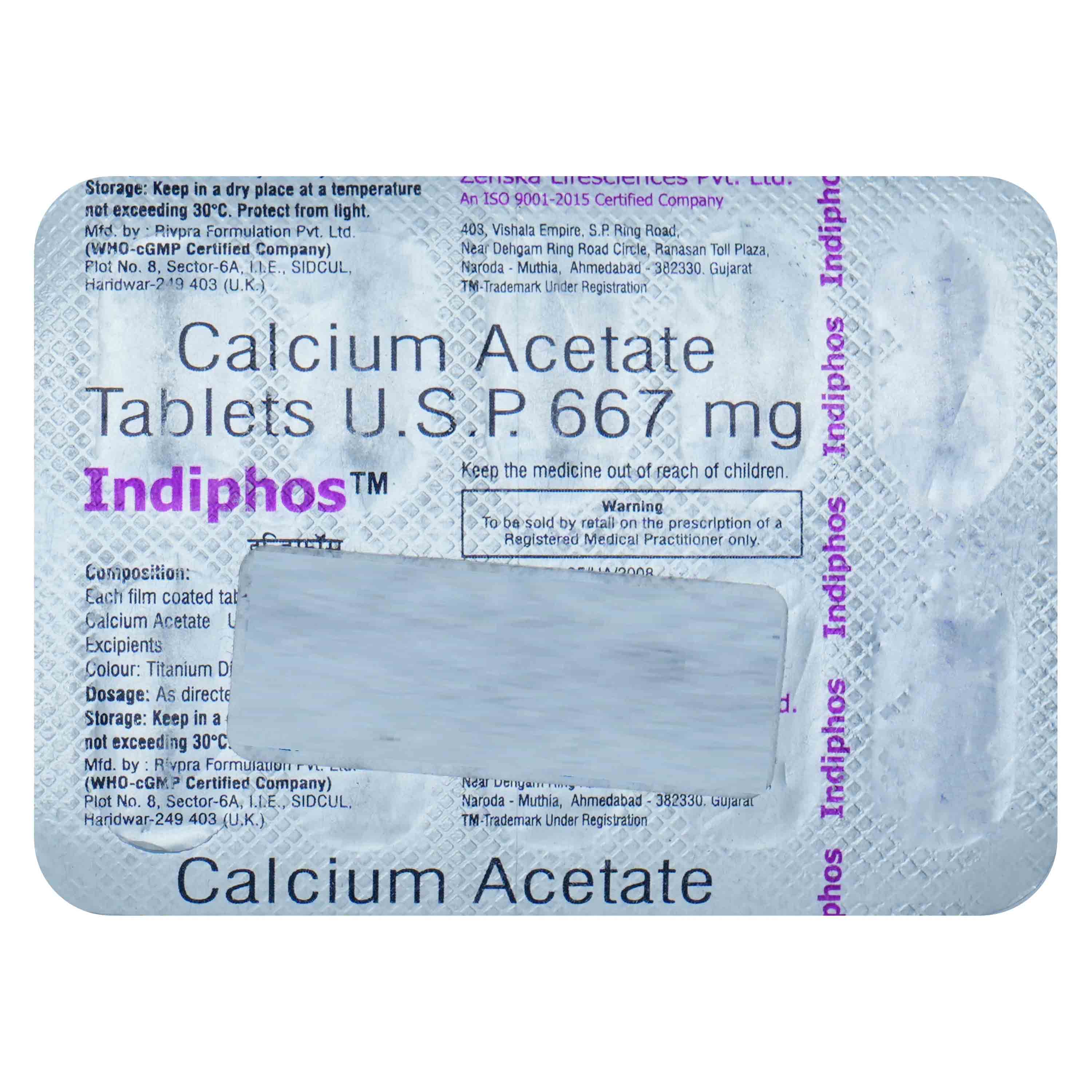Phostat Tablet 10's
Phostat Tablet is used to prevent high blood phosphate levels. It contains calcium acetate. It is commonly used to treat kidney failure in individuals undergoing regular haemodialysis or continuous ambulatory peritoneal dialysis (CAPD). In kidney failure, the phosphate levels in the blood can be high. Phostat Tablet controls the phosphate levels by removing phosphate from the food in your stomach before it enters the bloodstream. Thus, it helps to prevent the high phosphate levels in the stream.
₹37.8*
MRP ₹42
10% off
₹35.7*
MRP ₹42
15% CB
₹6.3 cashback(15%)
Free Delivery
With Circle membership
(Inclusive of all Taxes)
This offer price is valid on orders above ₹800. Apply coupon PHARMA10/PHARMA18 (excluding restricted items)
Know Your Delivery Time
Provide Delivery Location
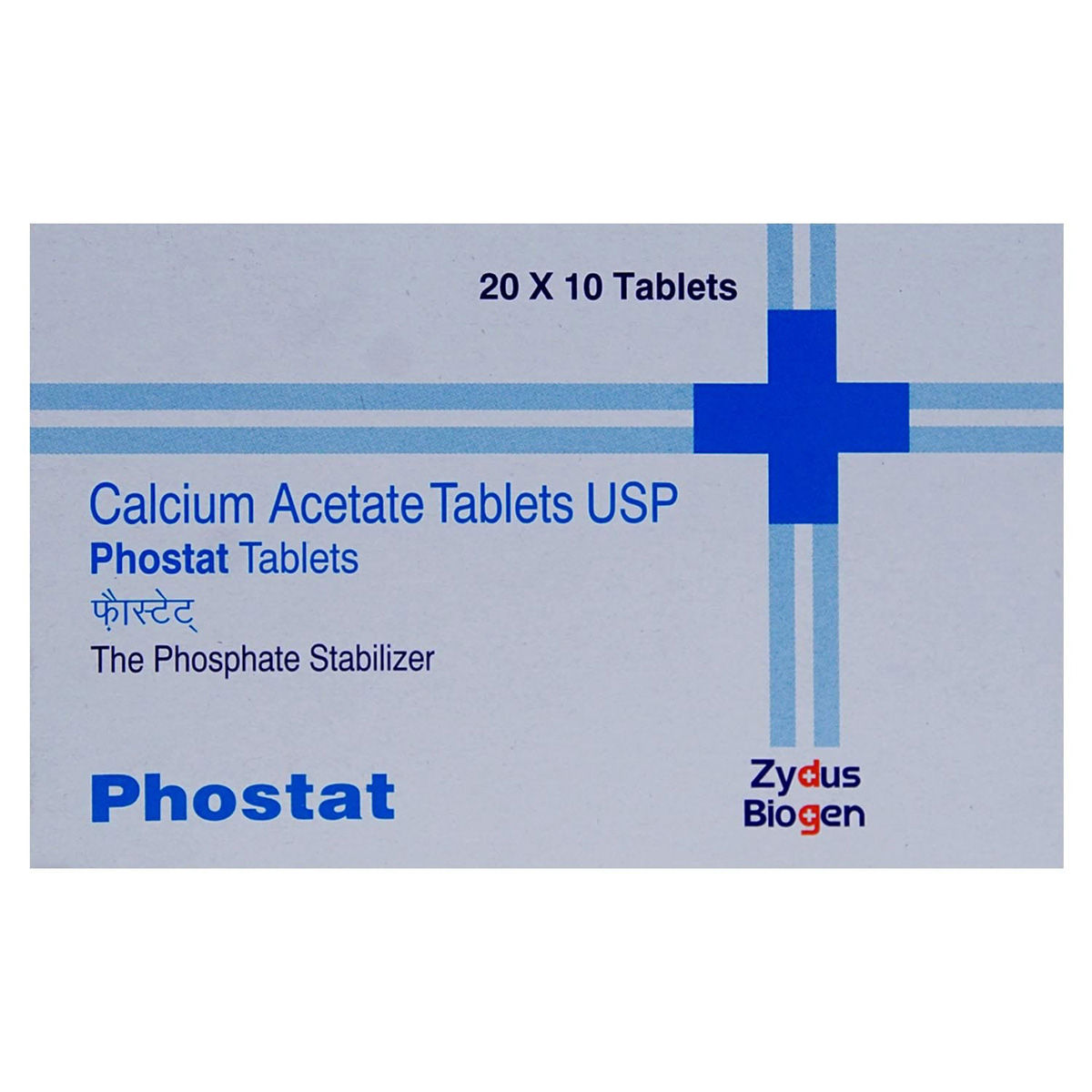
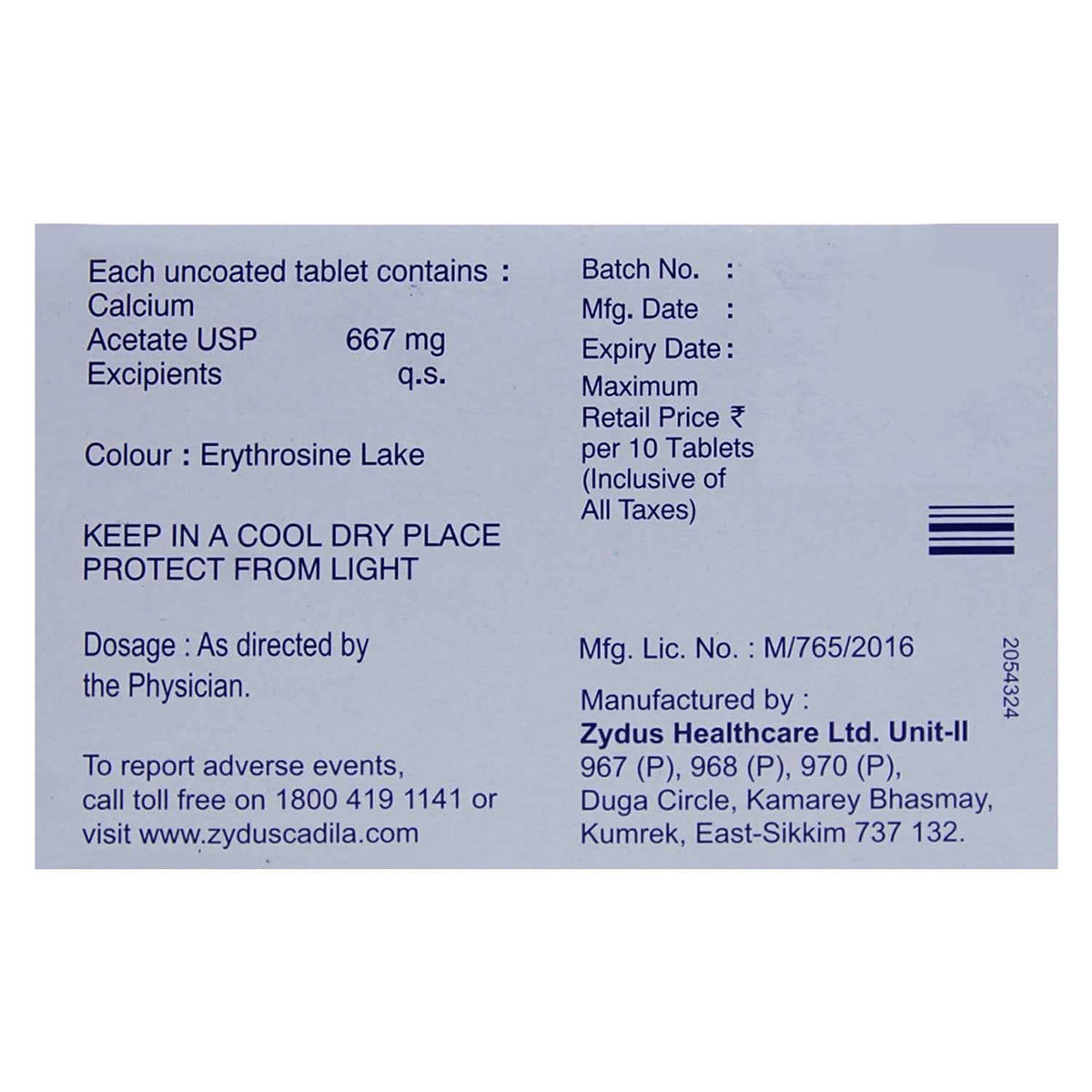
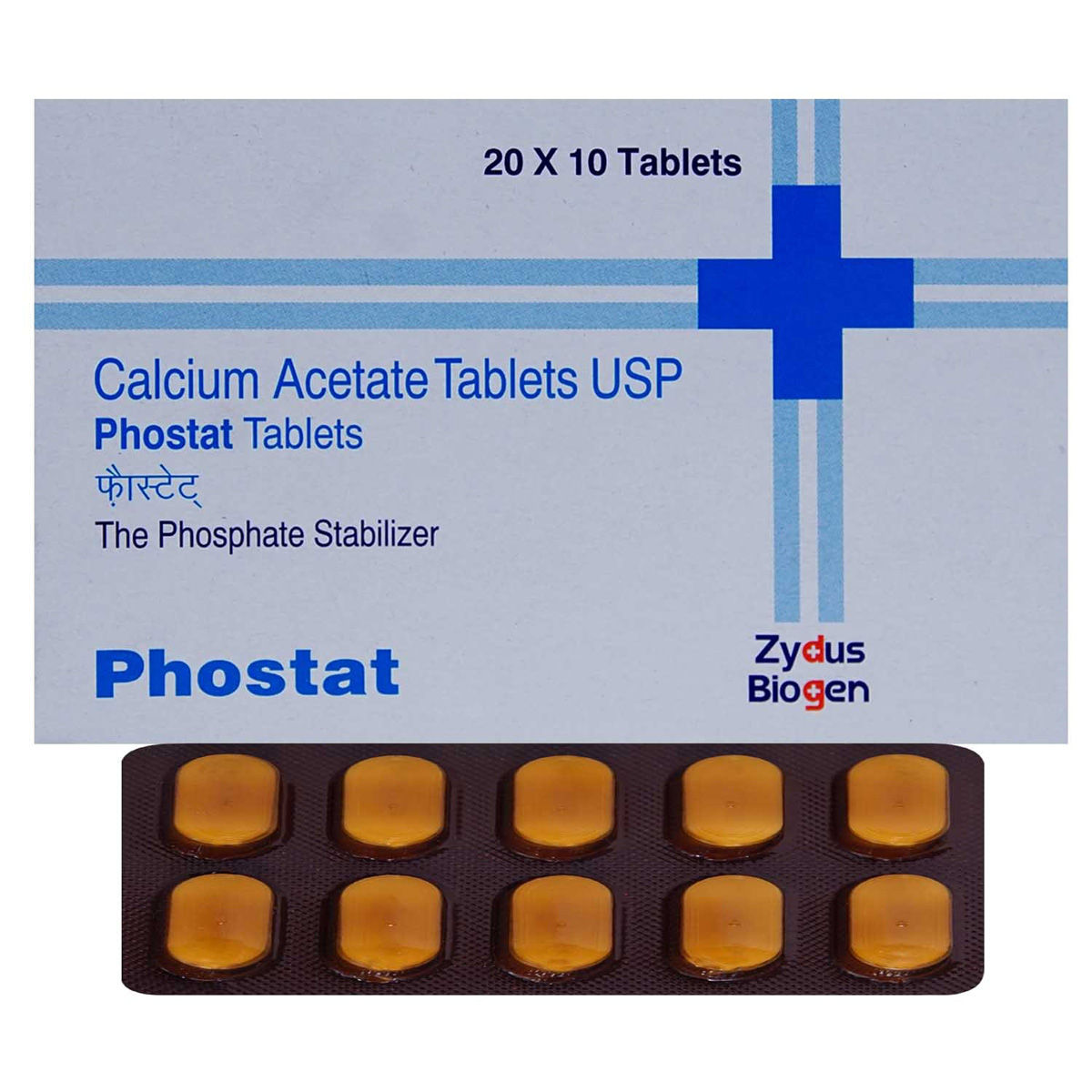
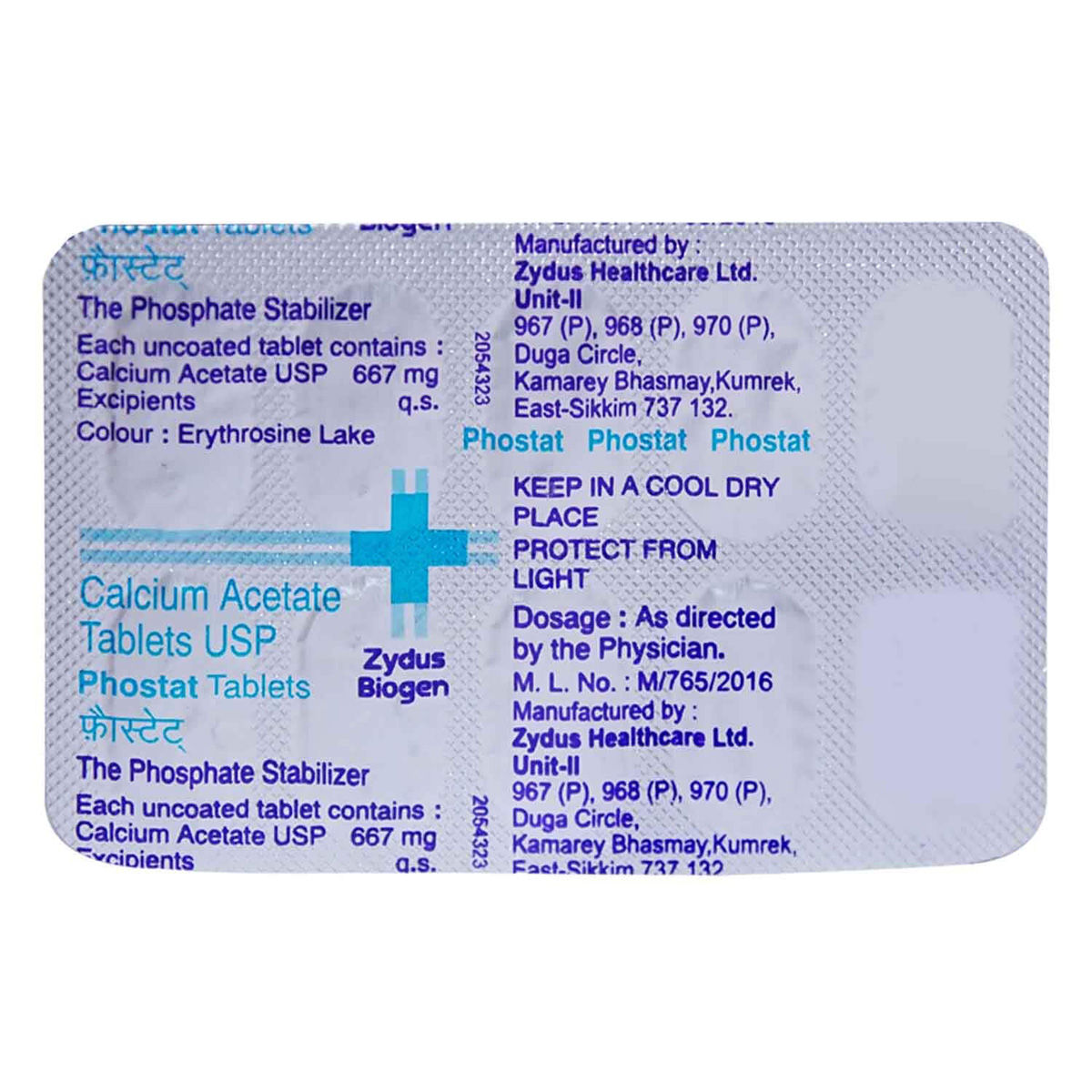
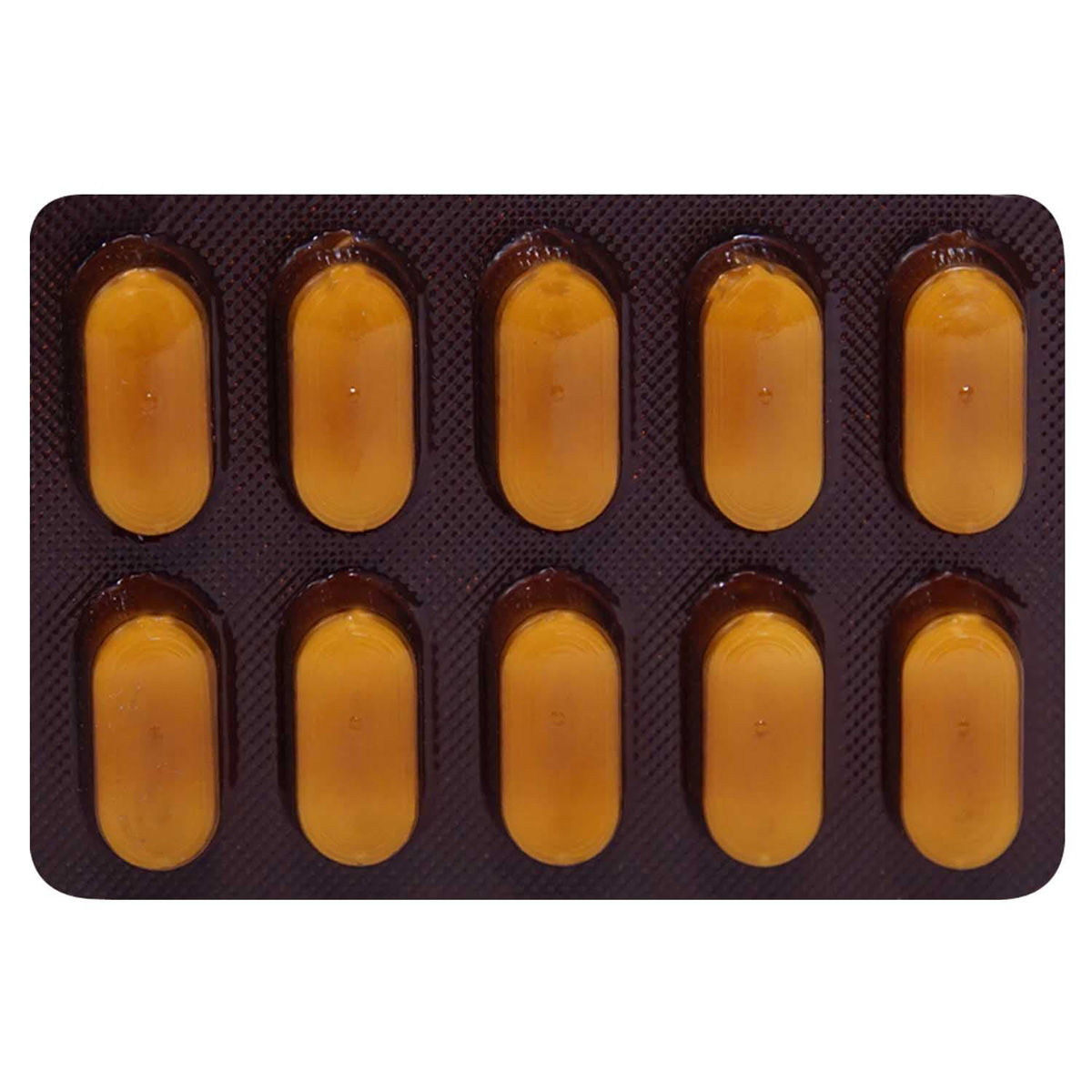

Secure Payment

India's Most Trusted Pharmacy

Genuine Products
Composition :
Manufacturer/Marketer :
Consume Type :
Return Policy :
Expires on or after :
About Phostat Tablet
Phostat Tablet belongs to the class of medicines known as phosphate binders. It is used to control high blood levels of phosphorus in people with kidney disease who are on dialysis (medical treatment to clean the blood when the kidneys are not working properly). High phosphorus, also called hyperphosphatemia, means you have extra phosphorus in your blood.
Phostat Tablet contains calcium acetate, which works by binding phosphorus that you get from foods in your diet and prevents it from being absorbed into your bloodstream.
Use Phostat Tablet as advised by your doctor. You may experience nausea (feeling sick) or vomiting (being sick), constipation and diarrhoea. Most of these side effects do not require medical attention and gradually resolve over time. However, if the side effects persist, contact your doctor.
Before taking Phostat Tablet , let your doctor know if you are allergic to any ingredient of it. Inform your doctor before taking Phostat Tablet if you are pregnant, planning to become pregnant, or breastfeeding if you have lactose intolerance, have high levels of calcium in your blood or urine, or have low levels of phosphate in your blood. It is recommended not to consume alcohol while on treatment with this medicine. Inform your doctor about your medical history and other medications you are currently taking to rule out any potential negative effects.
Description
Phostat tablets are used for managing hyperphosphatemia, a condition characterised by high levels of phosphate in the blood, especially in patients with chronic kidney disease.
This potent medication works by binding to phosphate in the digestive tract, thus preventing its absorption into the blood.
Phostat tablet effectively regulates your body's phosphate levels and helps maintain overall health with its active ingredient Calcium Acetate.
With its unique formulation and proven efficacy, this tablet ensures that your body receives the right balance of nutrients without compromising your health.
Please note that it is recommended to consult your doctor for specific usage and safety precautions necessary.
Features
- Contains the active ingredient Calcium Acetate
- Prevents phosphorus absorption from food in your diet into your bloodstream
- Typically taken with a meal or immediately after a meal
- Consumed orally with water
Uses of Phostat Tablet
Directions for Use
Medicinal Benefits
Phostat Tablet belongs to the class of medicines known as phosphate binders. It contains calcium acetate. It is commonly used to treat kidney failure in individuals undergoing regular haemodialysis or continuous ambulatory peritoneal dialysis (CAPD). In kidney failure, the phosphate levels in the blood can be high. Phostat Tablet controls the phosphate levels by removing phosphate from the food in your stomach before it enters the bloodstream. Thus, it helps to prevent the high phosphate levels in the stream.
Side Effects of Phostat Tablet
- Nausea (feeling sick)
- Vomiting (being sick)
- Constipation
- Diarrhoea
- Rash
Storage
Drug Warnings
Before taking the Phostat Tablet , inform your doctor if you are allergic to any of its ingredients. If you are pregnant, planning to become pregnant, or breastfeeding, or if you have high levels of calcium in your blood or urine or low levels of phosphate in your blood. Long-term high calcium levels in your blood may lead to a build-up of calcium in your blood vessels or soft tissues. Your blood calcium levels will be checked on a regular basis by your doctor. If your levels are too high, your dose will be lowered, or your therapy will be stopped immediately. Other medications, especially antibiotics (such as norfloxacin, ciprofloxacin, or tetracyclines), diuretics (such as thiazides), and bisphosphonates (used to treat bone problems), should not be taken with Phostat Tablet unless prescribed by a doctor.
Therapeutic Class
Drug-Drug Interactions
Drug-Food Interactions
Drug-Drug Interactions Checker List
- NORFLOXACIN
- CIPROFLOXACIN
- HYDROCHLOROTHIAZIDE
- CHLORTHALIDONE
- ALENDRONATE
- RISEDRONATE
Diet & Lifestyle Advise
- Maintain a well-balanced and healthy diet.
- Keep your weight under control with a BMI of 19.5-24.9
- Eat low-phosphorus foods such as sourdough bread, corn or rice cereals, cream of wheat, unsalted popcorn and some light-coloured sodas & lemonade.
- Avoid high-phosphorus foods, including bran cereals, oatmeal, nuts, sunflower seeds, whole-grain bread and dark-coloured colas.
- Limit or avoid alcohol consumption.
- Quitting smoking is the best strategy to lower the risk of illness.
Habit Forming
How Phostat Tablet Works
What if I have taken an overdose of Phostat Tablet
Alcohol
Caution
Avoid the consumption of alcohol as it may cause some side effects and make Phostat Tablet less effective.
Pregnancy
Caution
Phostat Tablet should not be used in pregnancy unless clearly necessary. So, inform your doctor if you are pregnant or suspect pregnancy. Your doctor will weigh the benefits and potential risks before prescribing Phostat Tablet .
Breast Feeding
Caution
Phostat Tablet should not be used in nursing mothers unless clearly necessary. Inform your doctor if you are breastfeeding. Your doctor will weigh the benefits and potential risks before prescribing Phostat Tablet .
Driving
Safe
Phostat Tablet does not affect your ability to drive or operate machinery.
Liver
Caution
If you have liver problems, inform your doctor before taking Phostat Tablet . Your doctor may adjust the dose of this medicine based on your condition.
Kidney
Caution
If you have a pre-existing or a history of kidney condition, inform your doctor before taking Phostat Tablet . Your doctor may adjust the dose of this medicine based on your condition.
Children
Consult your doctor
Safety and effectiveness in pediatric patients have not been established. Please consult your doctor.
Country of origin
Manufacturer/Marketer address
Author Details
We provide you with authentic, trustworthy and relevant information
FAQs
Disclaimer
Customers Also Bought
Product Substitutes
Reference
- https://www.kidneyfund.org/living-kidney-disease/health-problems-caused-kidney-disease/high-phosphorus-hyperphosphatemia#:~:text=High%20phosphorus%2C%20also%20called%20hyperphosphatemia,2.5%20to%204.5%20mg%2FdL.
- https://www.drugs.com/drug-interactions/calcium-acetate.html
- https://medlineplus.gov/druginfo/meds/a620017.html
- https://www.accessdata.fda.gov/drugsatfda_docs/label/2011/021160s015lbl.pdf
- https://www.hpra.ie/img/uploaded/swedocuments/f1814b11-8a2c-41e0-95a1-7de958a5d7f4.pdf
Recommended for a 30-day course: 3 Strips











